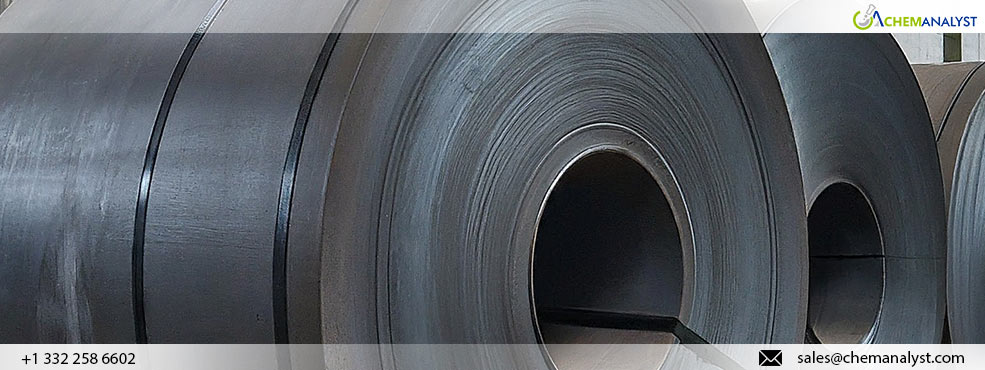Welcome To ChemAnalyst

In the world of Hot-Rolled Coil (HRC), the European and Chinese markets have been prevalent with significant developments that are capturing the attention of industry players and observers alike. Starting with the European landscape, Germany witnessed a slight increase in HRC prices during the fourth week of May. However, as suppliers in Asia explore alternative solutions, concerns loom over the metal forming industry and service centres across Europe. The market mood varied between Southern Europe and Germany, with the latter facing uncertainties in pricing and demand, potentially influenced by decreased local supply from Acciaierie d’Italia.
European distributors are approaching the market cautiously, refraining from large orders amidst pricing unpredictability and wavering demand dynamics. While Southern Europe paints a more positive picture, a sense of unease pervades as major customers turn to non-EU imports for finished steel goods to circumvent regulations under the Carbon Border Adjustment Mechanism (CBAM). Consequently, European steel service providers are trading carefully amid these market uncertainties and shifting consumer behaviours.
On the regulatory front, certain European steel producers are contemplating price adjustments for HRC following the European Commission's announcement of a 15% cap per origin on the "other country" tariff-rate quota (TRQ) for Hot-Rolled Coil. Despite this regulatory outlook, the HRC market across Europe remains relatively tranquil with limited activity. In the UK, prior to the Commission's update, a marginal upturn in spot market prices for HRC was registered in the final week of May.
Shifting focus to China, the HRC pricing dynamics in the spot market experienced subtle fluctuations during the fourth week of May. Futures prices displayed modest movements against a backdrop of mixed market sentiments, with downstream terminals engaging in demand-driven purchases despite some participants expressing pessimism. Market transactions, while slightly subdued, maintained an average HRC volume. Blast furnace production rebound fell short of expectations, leading to weakened support for ore prices despite optimistic future projections bolstered by positive real estate policies.
In the subsequent weeks in China, HRC prices in the spot market remained steady initially before witnessing a slight decline. The market faced reduced overall activity, driven by constraints on crude steel production, diminishing product demand, and mounting inventory concerns. While the initial optimistic impact waned, subsequent control policies and market drivers led to decreased market sentiment. As June unfolded, China experienced volatile HRC pricing trends alongside fluctuating market confidence, tepid trading atmosphere, and weaker HRC transactions driven by demand waiting games among downstream terminals. The observations underscored the evolving dynamics in both the European and Chinese HRC markets, shaped by a delicate interplay of supply-demand interactions, market sentiments, and regulatory frameworks.
We use cookies to deliver the best possible experience on our website. To learn more, visit our Privacy Policy. By continuing to use this site or by closing this box, you consent to our use of cookies. More info.
